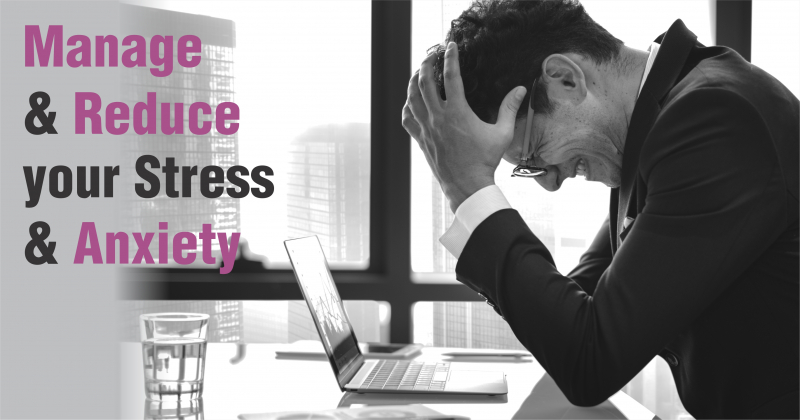
October 11, 2021 04:40 Created by Admin, Last modified on November 02, 2021 05:48
Stress is a feeling of being under abnormal pressure. This pressure can come from different aspects of your day to day life. Such as an increased workload, a transitional period, an argument you have with your family or new and existing financial worries. You may find that it has a cumulative effect, with each stressor building on top of one another. Stress affects us in a number of ways, both physically and emotionally and in varying intensities.
Here are 5 simple ways to relieve stress and anxiety:
1) Exercise- It is one of the most important things you can do to combat stress. It might seem contradictory, but putting physical stress on your body through exercise can relieve mental stress. The benefits are strongest when you exercise regularly. People who exercise regularly are less likely to experience anxiety than those who don’t exercise.
There are a few reasons behind this:
- Stress hormones: Exercise lowers your body’s stress hormones — such as cortisol — in the long run. It also helps release endorphins, which are chemicals that improve your mood and act as natural painkillers.
- Sleep: Exercise can also improve your sleep quality, which can be negatively affected by stress and anxiety.
- Confidence: When you exercise regularly, you may feel more competent and confident in your body, which in turn promotes mental wellbeing.
Try to find an exercise routine or activity you enjoy, such as walking, dancing, rock climbing or yoga.
2) Meditate- A few minutes of practice per day can help ease anxiety. Research suggests that daily meditation may alter the brain’s neural pathways, making you more resilient to stress. It's simple. Sit up straight with both feet on the floor. Close your eyes. Focus your attention on reciting -- out loud or silently -- a positive mantra such as “I feel at peace” or “I love myself.” Place one hand on your belly to sync the mantra with your breaths. Let any distracting thoughts float by like clouds.
3) Talk to someone you trust about how you're feeling- Just talking to someone about how you’re feeling can take a weight off your shoulders. Make sure you trust the person, work out what you want to say to them, and then just go for it. If you’re finding it tricky, we’ve got four more steps for talking to someone you trust here.
4) Check Your Diet- What we eat and drink impacts our emotional state. The foods most associated with exacerbating anxiety are those containing caffeine and alcohol. Even consumed in small amounts, studies have found that the stimulating effects of caffeine can cause anxiety, trigger panic attacks, and increase feelings of nervousness and irritability. Caffeine also causes physical symptoms such as trembling and shaking. Abruptly eliminating caffeine from the diet, however, can lead to withdrawal symptoms, such as headaches, restlessness, and irritability, so it's important to decrease consumption gradually.
5) Face your fears- If you always avoid situations that make you anxious, this might be stopping you from doing things you want or need to do. It sounds weird, but facing the things that make you anxious can reduce your anxiety. Begin with small steps – think of them as ‘acts of bravery’ – to test whether the situation is as bad as you expected and to learn to manage your fears.

